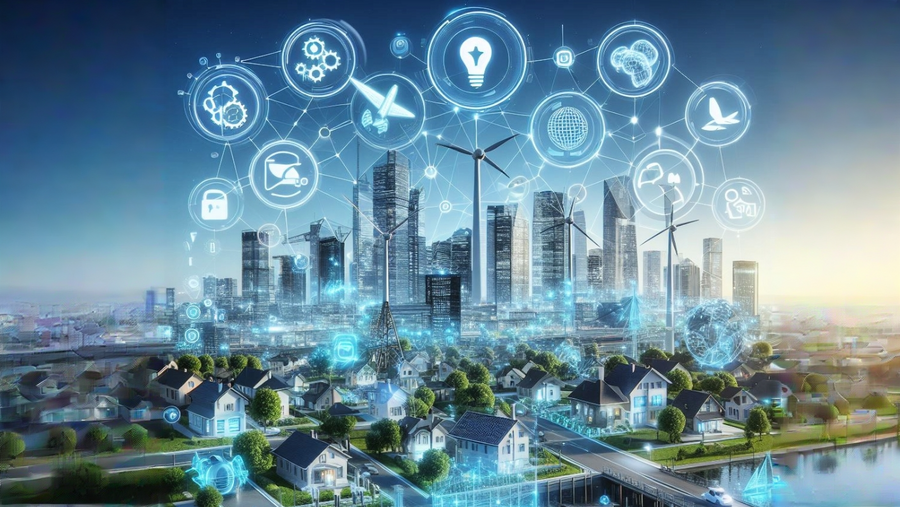Cyber Physical Systems

For the University of Wuppertal (BUW), Cyber Physical Systems (CPS) are a central focus within computer science. Today, CPS form the core of the modern information society and embody the integration of computing power into our physical environment, enabling seamless interaction between humans, nature and machines. At BUW, we are committed to the research and development of CPS in order to develop innovative solutions to the complex challenges of our time. Our research focuses on the fusion of digital and physical components into intelligent networked units that can communicate and act autonomously. This interplay of technical systems ranges from distributed embedded systems to complex, communicating industrial and production systems (Cyber Physical Production Systems - CPPS) and networked sensor systems.
Anwendungsbereiche
In our research, we pursue an interdisciplinary approach that combines computer science with electrical engineering. The BUW chairs and working groups cover different CPS application areas:
We research how energy efficiency and sustainability can be improved by integrating communication technologies into energy management. Our work supports the development of smart energy grids that respond to real-time and forecast data to ensure a stable and environmentally friendly energy supply.
In the field of intelligent mobility, we are working on AI and sensor-supported multimodal traffic concepts, and in the automotive sector we are researching intelligent driver assistance systems through to concepts for automated networked driving, with car-to-x communication also playing an important role. Our research aims to improve the safety and efficiency of the traffic system by enabling vehicles to exchange information about the traffic situation and react accordingly. Data processing and communication via the in-car networks within the vehicle must also be optimized for this purpose. We are also investigating how a wide range of information can contribute to a better overall picture to enable intelligent traffic management. The AI-based evaluation of distributed sensor information (from video, radar, lidar, ultrasound, etc.) plays an important role here.
In the age of the fourth industrial revolution (Industry 4.0), we are investigating how CPPS can drive automation and digitalization in production. Our focus is on creating smart factories that enable more efficient and flexible production through machine-to-machine communication in combination with machine learning.
Patient data is passed on in a targeted manner via a communication infrastructure to ensure a smooth exchange between specialists. Remote patient monitoring and remote patient treatment is made possible by transmitting sensor values. Nursing robots relieve nursing staff. Sensor-based environmental monitoring enables numerous applications in the field of medical aids.
Networked devices in the household and service sector make life at home easier. Security and convenience services are also part of this area.
Through these fields of application and the close cooperation of our chairs and research groups, the University of Wuppertal offers students and researchers alike a platform to work at the forefront of technological development and to develop innovative solutions for the challenges of our time. Our research not only includes the technical development and optimization of such systems, but also takes into account ethical, social and ecological aspects in order to promote sustainable and socially responsible technologies. We invite you to become part of our community and shape the future of Cyber Physical Systems together.
Chairs and research groups
The following computer science chairs and research groups are active in the “Cyber Physical Systems” focus area:
General electrical engineering and theoretical communications engineering (Prof. Anton Kummert)
Automation technology/computer science (Prof. Dietmar Tutsch)
IT security & cryptography (Prof. Tibor Jager)
Technologies and management of digital transformation (Prof. Tobias Meisen)
Robust, Secure and Privacy-Preserving Smart Systems (Prof. Dr.-Ing. Christian Mainka)
Reliable Software and Distributed Systems (Prof. Dr.-Ing. Malte Mues)
and in cast:
Data Analytics
Massive Data Processing
Media informatics
